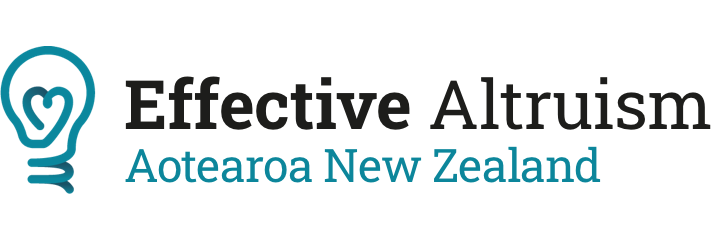
Our Values
Ngā Mātāpono
What is Effective Altruism? > Our Values
The effective altruism community isn’t united by any particular solution to the world’s problems, but by a way of thinking.
While the things we focus on may change, we are guided by some tentative values and principles that underpin our search for the best ways of helping others:
Prioritisation
Kaupapa Matua
Our intuitions about doing good don't usually take into account the scale of the outcomes — helping 100 people often makes us feel as satisfied as helping 1000. But since some ways of doing good also achieve dramatically more than others, it’s vital to attempt to use numbers to roughly weigh how much different actions help. The goal is to find the best ways to help, rather than just working to make any difference at all.
Impartial Altruism
Atawhai Tōkeke
It's easy — and understandable — to have special concern for your own family, friends or nation. But, when trying to do as much good as possible, it seems that we should give everyone's interests equal weight, no matter who they are or where or when they live. This means focusing on the groups who are most neglected: which usually means focusing on those who don’t have as much power to protect their own interests.
Open-Mindedness
Whakaaro Tuwhera
Rather than starting with a commitment to a certain cause, community or approach, it’s important to consider many different ways to help and seek to find the best ones. This means putting serious time into deliberation and reflection on one’s beliefs, being constantly open and curious for new evidence and arguments, and being ready to change our views quite radically.
Collaborative Spirit
Wairua Mahi Tahi
It’s often possible to achieve more by working together, and doing this effectively requires high standards of honesty, integrity, and compassion. Effective altruism does not mean supporting ‘ends justify the means’ reasoning, but rather is about being a good citizen, while ambitiously working toward a better world.
We’re not totally confident in the above ideas - but we think they’re probably right, and that they are undervalued by much of society. Anyone who is trying to find better ways to help others is participating in effective altruism. This is true no matter how much time or money they want to give, or which issue they choose to focus on.
Effective altruism can be compared to the scientific method. Science is the use of evidence and reason in search of truth– even if the results are unintuitive or run counter to tradition. Effective altruism is the use of evidence and reason in search of the best ways of doing good.
The scientific method is based on simple ideas (e.g. that you should test your beliefs) but it leads to a radically different picture of the world (e.g. quantum mechanics). Likewise, effective altruism is based on simple ideas – that we should treat people equally and it’s better to help more people than fewer – but it leads to an unconventional and ever-evolving picture of doing good.
Content adapted with permission from effectivealtruism.org



